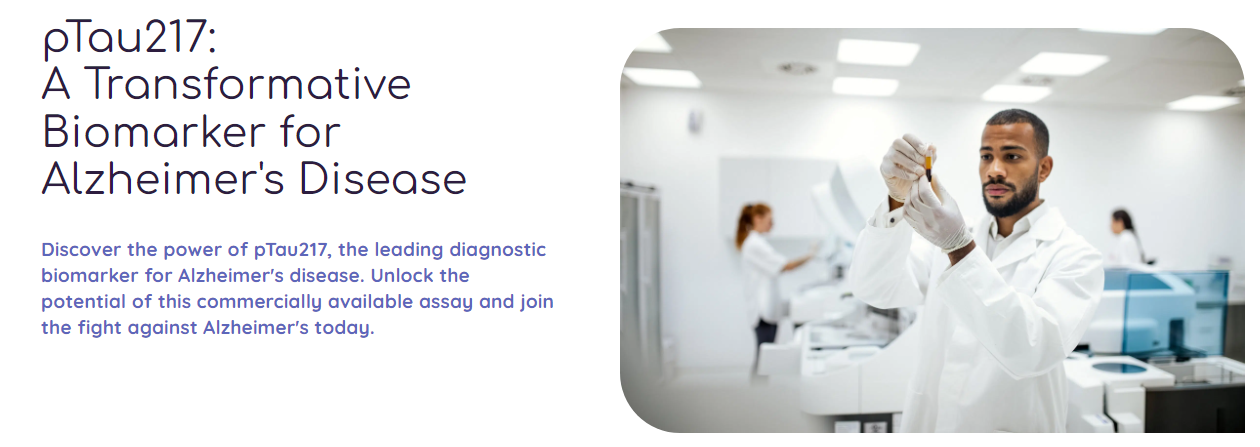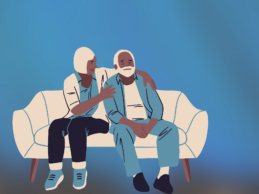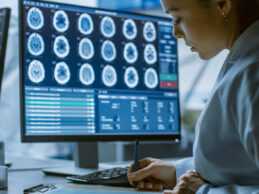What You Should Know:
- Rippl, a provider of virtual dementia care raises $23M ina Series A funding round led by Tina Hoang-To, Founding General Partner at Kin Ventures, with participation from existing investors including ARCH Venture Partners, General Catalyst, GV (Google Ventures), F-Prime, Mass General Brigham Ventures, and 1843 Capital. JSL Health also joined the round as a new investor.
- The need for accessible and compassionate dementia care is more critical than ever. With
Read More
dementia
ALZpath Secures Funding for Blood-Based Biomarker Testing for Alzheimer’s Disease Detection
What You Should Know:
- ALZpath, a developer of blood-based diagnostic biomarker testing for Alzheimer's disease detection receives funding from the Alzheimer’s Drug Discovery Foundation (ADDF)’s Diagnostics Accelerator to accelerate the clinical availability of ALZpathDx as a laboratory developed test (LDT).
- ALZpathDx is a novel, proprietary assay for blood-based measurement of phosphorylated tau at threonine 217 (pTau217), a highly accurate, diagnostic biomarker for
Read More
Are Hospitals Ready for Alzheimer’s Treatment Approval?
The FDA’s recent accelerated approval of Leqembi was welcome news across the Alzheimer’s community. However, few health systems, medical practices, or providers are prepared for the extraordinary public interest in a treatment for Alzheimer’s disease – especially not one targeting mild cognitive impairment (MCI) and early dementia due to Alzheimer’s disease – that is likely headed their way soon. The unprecedented scale of the public health and marketing campaigns, the high prevalence of MCI in
Read More
Blood Sugar Monitoring Devices Pose Wearability & Use Problems for Older Diabetic Adults & Caregivers
What You Should Know:
- In an initial trial of continuous glucometer use, faulty device adhesive -- a serious wearability challenge -- and patient difficulty in interpreting graphs produced by the device, were noted. In a subsequent trial, 70 older adults with diabetes wore glucometers and activity monitors and used smartphones and electronic medication bottles to track and manage blood sugar over a two-week period.
- Among these 70 patients, two-thirds of whom were African American and
Read More
The Continuing Rise of AI in the Healthcare Sector in 2023
The announcement in September 2022 that the health tech company Iodine Software was entering into a partnership with the software platform TruCode “to upend clinical administration using artificial intelligence” serves as one of the more recent reminders of AI’s considerable impact on the healthcare sector.
Certainly, it will be felt not just in the administrative realm, but also in the clinical and operational aspects as well. And given the challenges presented by a rapidly aging population,
Read More
The Evolution from Hearing Aids to Wellness Devices
Here’s what we know from decades of research: Hearing loss affects health and well-being, but people with hearing loss are often reluctant to wear hearing aids. Of course, they’re doing themselves no favors. But when they do finally opt for hearing assistance (on average, about seven years after they learn they need it), we also now know that the longer people wear hearing aids — throughout the day, for instance, rather than just in certain situations — the healthier they tend to be. Better
Read More
Real-World Study Uses AI to Identify Undiagnosed Dementia in Primary Care
What You Should Know:
- Rising to meet the formidable challenge of the timely diagnosis of dementia, research scientists from Regenstrief Institute, IUPUI and the medical schools of Indiana University and the University of Miami are conducting the Digital Detection of Dementia study, a real-world evaluation of the use of an artificial intelligence (AI) tool they developed for early identification of Alzheimer’s disease and related dementias in primary care, the setting where most adults
Read More
Why The Future of Lateral Flow Testing is Digital
Lateral flow immunoassay tests (or LFTs, for short) have been in use for decades, becoming an indispensable tool within diagnostics’ (Dx) practice, as well as a growing range of applications outside healthcare. LFT's capacity for delivering fast turnaround—rapid detection in less than 20 minutes—from sample to result has made LFTs central to the shift moving triage and primary care closer to the patient at point-of-care (POC) and point-of-need (PON).
Being intuitive for the user,
Read More
Walgreens Find Care Offers Dementia Patients with Personalized Playlists
What You Should Know:
- Music Health Inc. announced that its music wellness app, Vera, is now available through Walgreens Find Care® to provide people living with different forms of dementia with convenient and affordable access to personalized music from their computers and smart devices.
- Vera is a new app that supports caregivers by offering the person in their care a custom-made “soundtrack of their lives” that can
Read More
RSNA: NVIDIA Partners With NHS Trusts to Deploy AI Platform in UK Hospitals
What You Should Know:
- A consortium of 10 National Health Service Trusts — the publicly funded healthcare system in England — is now deploying the MONAI-based AIDE platform across four of its hospitals, providing artificial intelligence (AI)-enabled disease-detection tools to healthcare professionals serving 5 million patients a year.
- AIDE, short for AI Deployment Engine, is expected to be rolled out next year across 11 NHS hospitals serving 18 million patients, bringing AI
Read More










